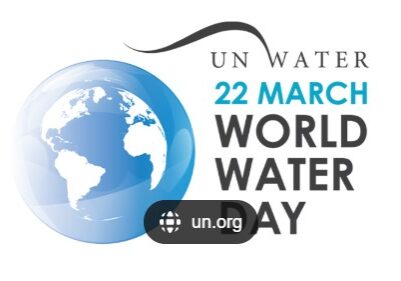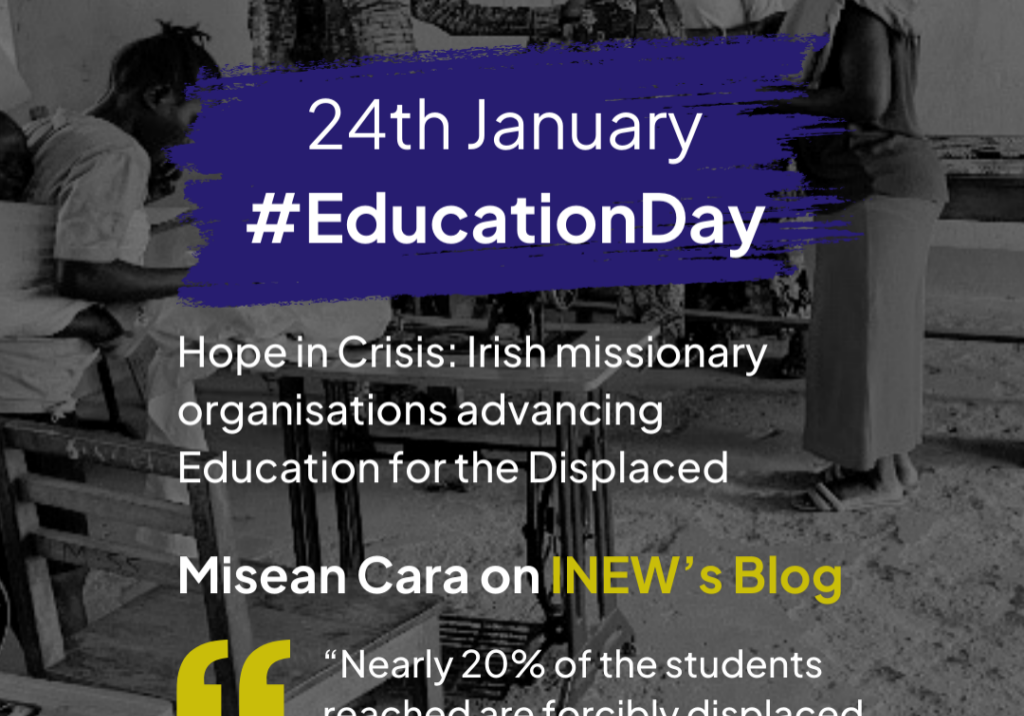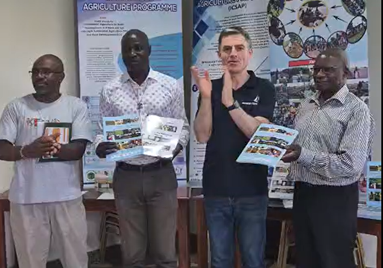Today, on International Women’s Day, meet some of the women and girls participating in Misean Cara member projects who are empowering themselves through new job skills and improved livelihoods; returning to or completing their formal education; or overcoming the injustice of Gender Based Violence to become community advocates for other women.
Misean Cara and its members are committed to women’s equality and committed to empowering women and girls, who often live at the margins of society, to achieve a better quality of life. Gender equality is critical to upholding justice and human rights and the UN Sustainable Development Goals. We support our members efforts to effect equitable change through their projects and the holistic approach that is the basis of their missionary development practices. Along with project funding, Misean Cara adopted a Gender Policy in 2021 for all projects that we fund, that provides guidance and guidelines to members on how to build projects that promote sustainable gender equality.
Click below to learn more about how our members’ projects help empower women and girls.
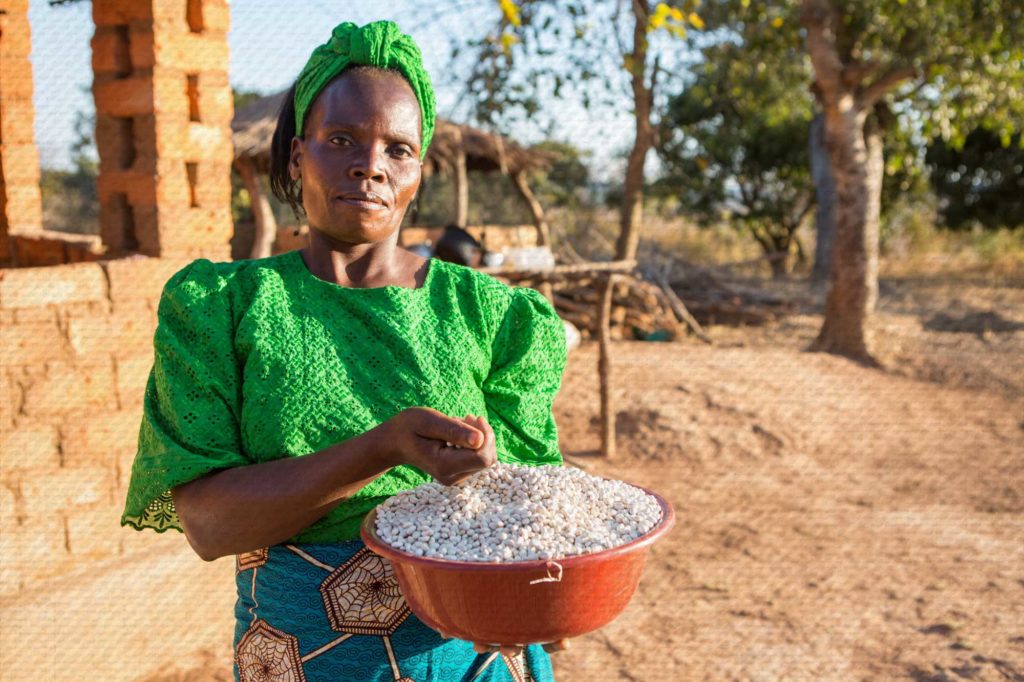
Beauty Nanyangwe – Zambia
Misean Cara Member: Sisters of the Sacred Hearts of Jesus and Mary
Project: Households in Distress
Divorced and the sole-provider to her two young nephews, Beauty Nanyangwe struggled to provide for her small family with what she earned doing poorly paid piece work. Her training with the ‘Households in Distress’ project helped her learn sustainable agricultural skills and she also took classes in how to conduct farming as a business. With the essential start-up supplies she received, including farming supplies, equipment and seeds for soya beans, maize, ground nuts and sweet potatoes, Beauty is now a successful farming entrepreneur.
“I really thank Misean Cara and the Households in Distress Programme for changing my life. In the past, I could only manage to eat one meal a day but now, I now eat three meals a day. I am now able to employ people to help me with my farming activities, and I have more time to build up my other business activities of selling eggs and cooking oil.”
Photo: Beauty Nanyangwe, divorced and the sole-provider to her two nephews, shows off beans harvested at her farm, where she grows crops to feed her family and is able to sell extra crops to help fund her other farming and entrepreneurial activities. Credit: Sisters of the Sacred Hearts of Jesus and Mary
“I really thank Misean Cara and the Sisters of the Sacred Hearts of Jesus and Mary ‘Households in Distress’ programme for changing my life.”
Beauty Nanyangwe – Zambia
Secondary Education for Indigenous Girls – Philippines
For girls of the indigenous Manobo Dulangan tribal community on Mindanao, the southernmost of the main islands of the Philippines, access to formal education is extremely limited. The government operates very few schools in this remote, mountainous area and most cater only to the early primary years.
To help secure brighter future outcomes for girls and young women in this impoverished community of 11,000, the Sisters of the Institute of Notre Dame des Missions (RNDM) operate a secondary school with boarding facilities, providing a way for Dulangan girls to continue and complete their studies and build a more secure future for themselves and their families. The girls board during the week and return home to visit their families and participate in traditional village life on weekends.
Photo: Students of the Secondary Boarding School for indigenous girls on Mindanao.
Credit: Notre Dame des Missions
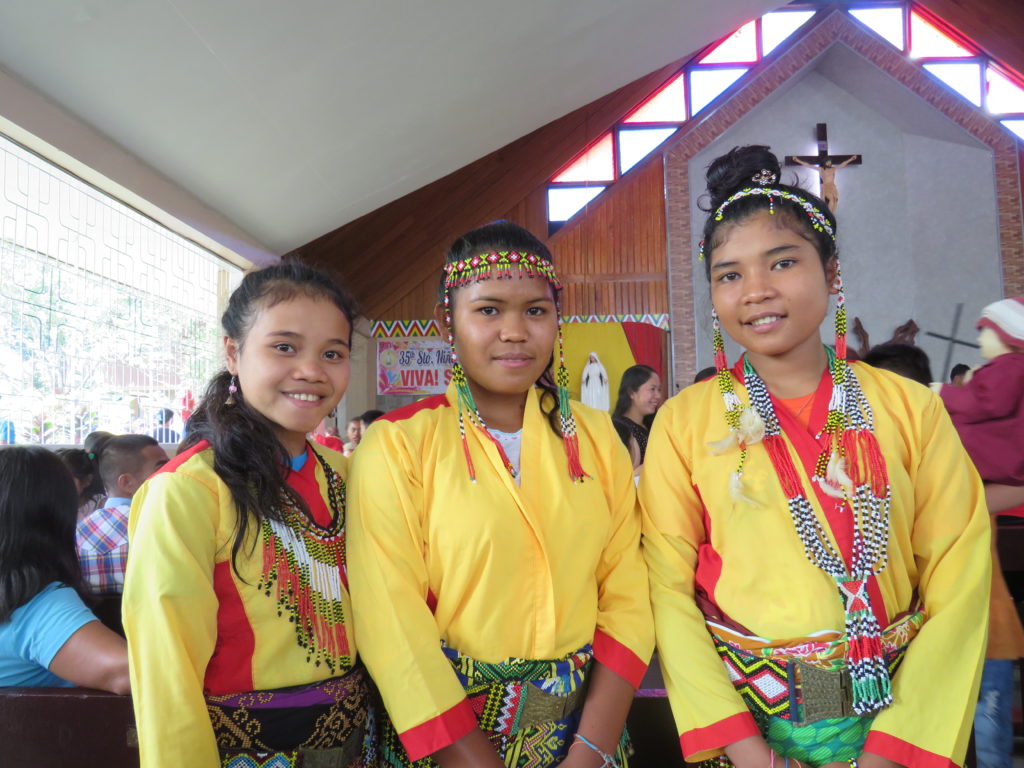
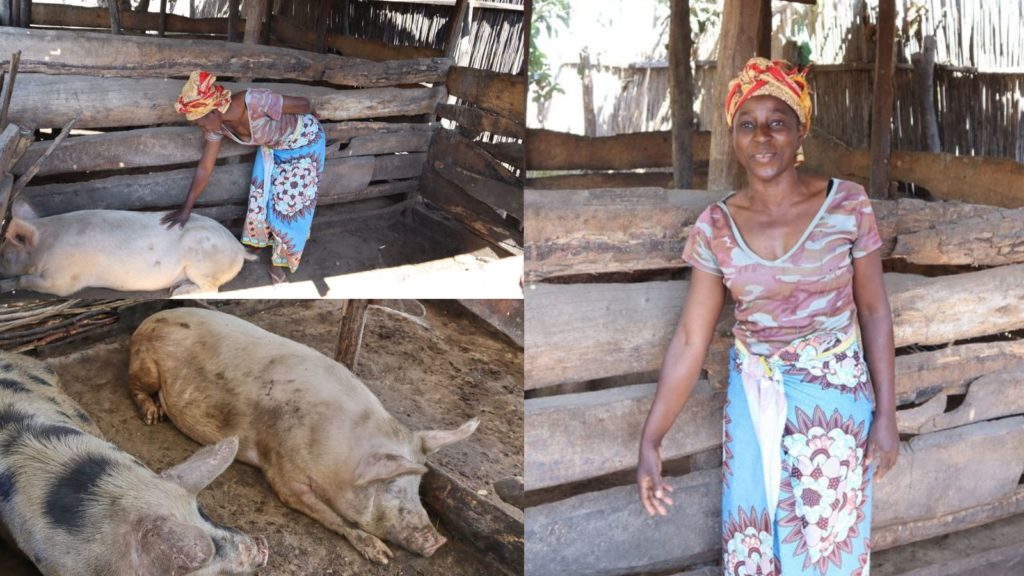
Juliet – Zambia
Member: Edmund Rice Development with the Congregation of the Christian Brothers
Project: Improving Food Security in the Western Cluster
Juliet is a single mother with four children who is enjoying a thriving business raising and selling a breed of large white hogs. Before joining the agriculture and food security project run by Edmund Rice Development, Juliet struggled with the meagre earnings she got from selling scones and dried fish at the marketplace. Through the project, Juliet attended workshops conducted by the Department of Agriculture, where she learned about pig-rearing and veterinary care, including how to administer injections to her pigs by herself.
Last year, Juliet sold eight piglets, holding two back to breed this year. Within three months of being born, Juliet is able to wean and sell the piglets. She is currently using the money she earns from selling the pigs to keep her children in school, buying uniforms and books and paying school fees. “There are other types of business that I would like to expand into that I can eventually do with the profits from my pigs.” She is also planning to expand her hog pen structure and would like to install a cement floor.
To keep her business sustainable, Juliet also participates in a Savings & Loan cooperative, where she is the group treasurer. “This year I will deposit the profits from one piglet and in twelve months’ time I will put the profits back into my business.”
Margaret – Zambia
Member: Edmund Rice Development with the Congregation of the Christian Brothers
Project: Improving Food Security in the Western Cluster
The Western Province of Zambia has the highest rate of poverty in Zambia, at more than 80%. Women, children, the elderly and disabled are most at risk of being poor and also from suffering the negative effects of poverty on health, nutrition and educational attainment.
For Margaret, age 57 and a female head-of-household, being involved in the Edmund Rice Development Food Security project has boosted her farming skills and her income from small-holder farming venture. On a plot of government owned land, Margaret grows okra, rape, cabbage and tomatoes. Her crop yields have increased after learning how to effectively fertilise her seeds with cow manure at planting, to boost their growth into seedlings.
“I am thankful for the help I have gotten to improve my farming and my income. There are still challenges, and times when things are tough, but with the extra money I now make from my crops I am able to put one of my grandchildren through college.”
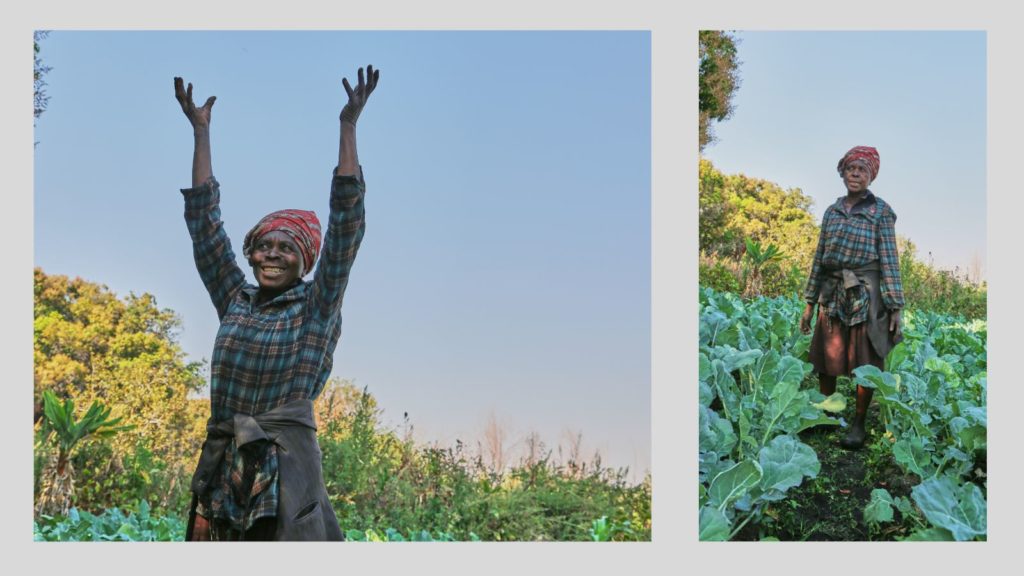
“I am thankful for the help I have gotten to improve my farming and my income. There are still challenges, and times when things are tough, but with the extra money I now make from my crops I am able to put one of my grandchildren through college.”
Margaret – Zambia
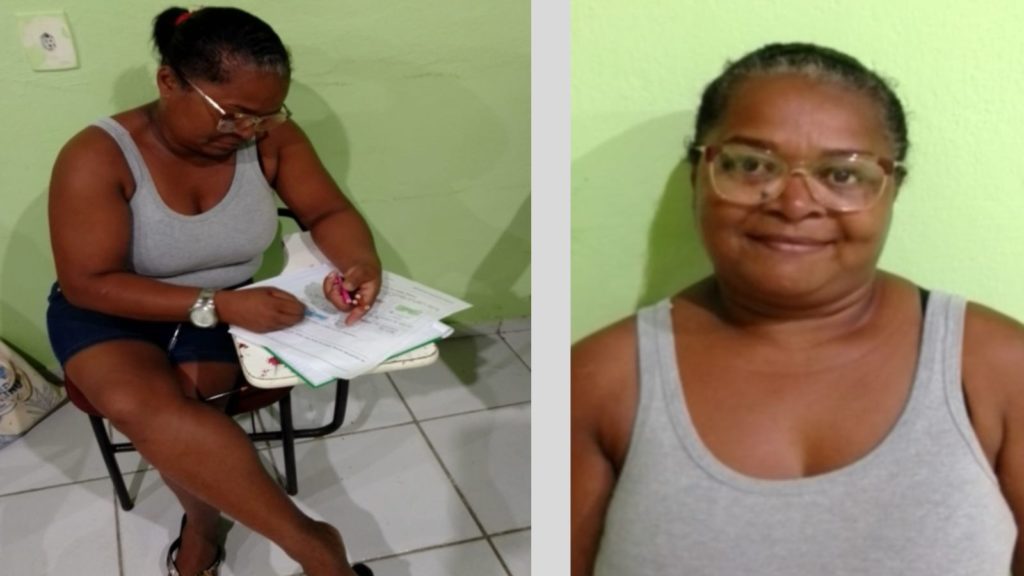
Maria de Jesus – Brazil
Member: Religious of the Sacred Heart of Mary
Project: Literacy project for young people, adults and the elderly
Literacy has the power to transform lives at any age. That has certainly been true for Maria, who because she was orphaned at the age of 11 and left to be the caregiver to her disabled sister, she could not stay in school and remained functionally illiterate, unable to read or write, well into adulthood.
Maria, now 47, regularly experienced humiliation and embarrassment trying to go about her daily life, feeling the scrutiny and judgement of others whenever she had to ask for help when riding the bus, taking her children to doctor appointments, conducting business at the bank or paying her bills. Her self-esteem suffered greatly. Finally, as an adult and mother of three children she decided to join the literacy project being offered by the Sisters of the Religious of the Sacred Heart of Mary.
“I am a happy woman now. I can read the destination of the bus I want to ride on and no longer need to ask for anyone’s help or hear someone’s unkind comments like before. I am a person who can read the labels on medication bottles. I can read my children’s names! I can read my utility bills. Because I can read I can take care of myself now. After being in the literacy programme, I live in a world of light, because I can see and recognise letters and words!”
“After being in the literacy programme, I live in a world of light, because I can see and can recognise letters and words!”
Maria de Jesus – Brazil
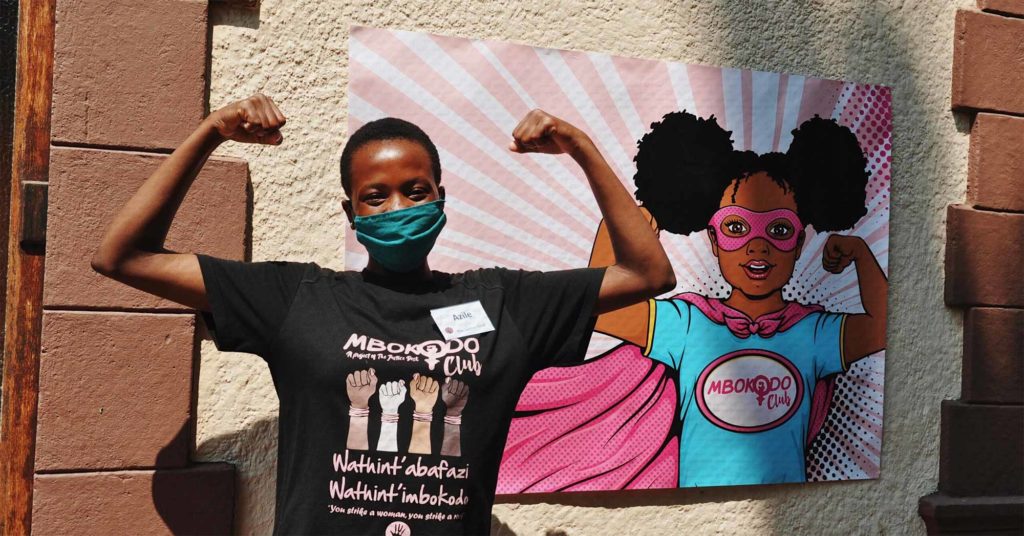
Azile – South Africa
The Justice Desk, with Misean Cara Member Edmund Rice Development
Project: Promoting the Power of Everyday Activists in Africa
At the age of just six years old, Azile experienced a brutal physical assault in her home country of South Africa, which has one of the highest rates of Gender Based Violence (GBV) in the world. Now though, Azile is learning to be a leader and activist who supports other girl survivors of GBV to go from ‘victim to victors’.
Azile is a member of the Mbokodo Club, a project of The Justice Desk, the club empowers and engages young women who have survived Gender Based Violence. Girls are taught emotional and personal resilience and are supported in speaking out for human rights in their communities. Self-defence classes teach them how to physically protect themselves and feel safer and more in control of their own bodies.
Founded in 2013, The Justice Desk is an award-winning organisation providing advocacy and training to 5,000 people each year in vulnerable communities across South Africa, Zambia and Zimbabwe.
Photo: Azile, a leader, activist and member of the Mbokodo Club for girl survivors of Gender Based Violence in South Africa. Credit: Meghan Gieske
Sandra – Colombia
Member: Society of the Divine Saviour
Project: Empowerment and collective self-capacity building of Colombian women-led micro-enterprises
Fleeing armed conflict in her rural village, Sandra moved to Medellín with her family to start their lives over in peace. Her experiences left her traumatised however. Fearful and depressed and often afraid to even speak to anyone outside her family, Sandra mostly isolated herself at home. Once settled in Medellín, Sandra was connected with the Fundación Opción Futuro project of the Society of the Divine Saviour, which works with vulnerable women to increase their self-confidence and boost their earning potential with skills and business training. Participants are organised into women-led micro-enterprises, where they are coached in a ‘collective capacity-building’ methodology, that teaches them collaborative working, pricing and negotiation skills, and other strategies that help their small businesses to stay viable in a competitive marketplace.
Sandra now operates her own small business making and selling jewelry. Her confidence and self-esteem have improved greatly as a result of being able to contribute to her family’s income and well-being.
“I have been able to change and transform myself, because now I feel comfortable expressing myself and sharing my ideas and talents. I am more confident in myself and I now contribute to my family by generating an income. All this has helped me to empower me.”
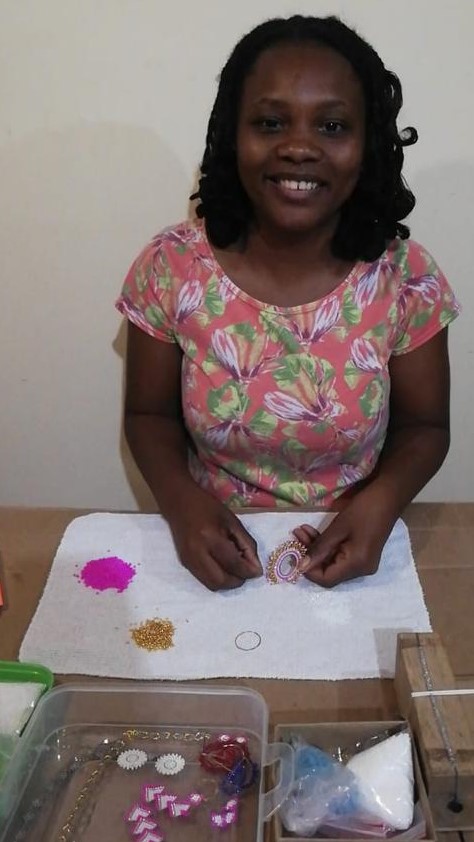
“I have been able to change and transform myself, because now I feel comfortable expressing myself and sharing my ideas and talents. I am more confident in myself and I now contribute to my family by generating an income. All this has helped me to empower me.”
